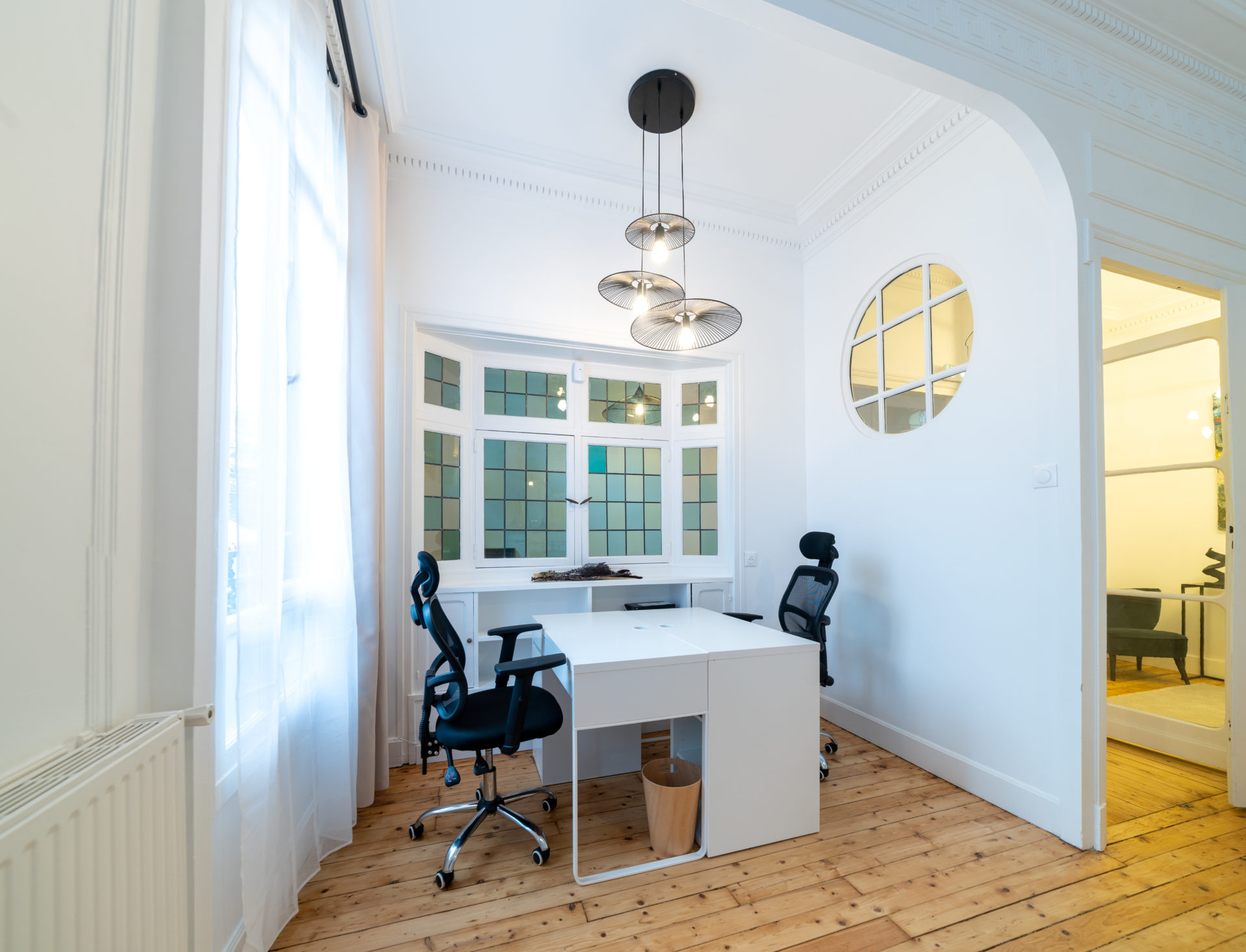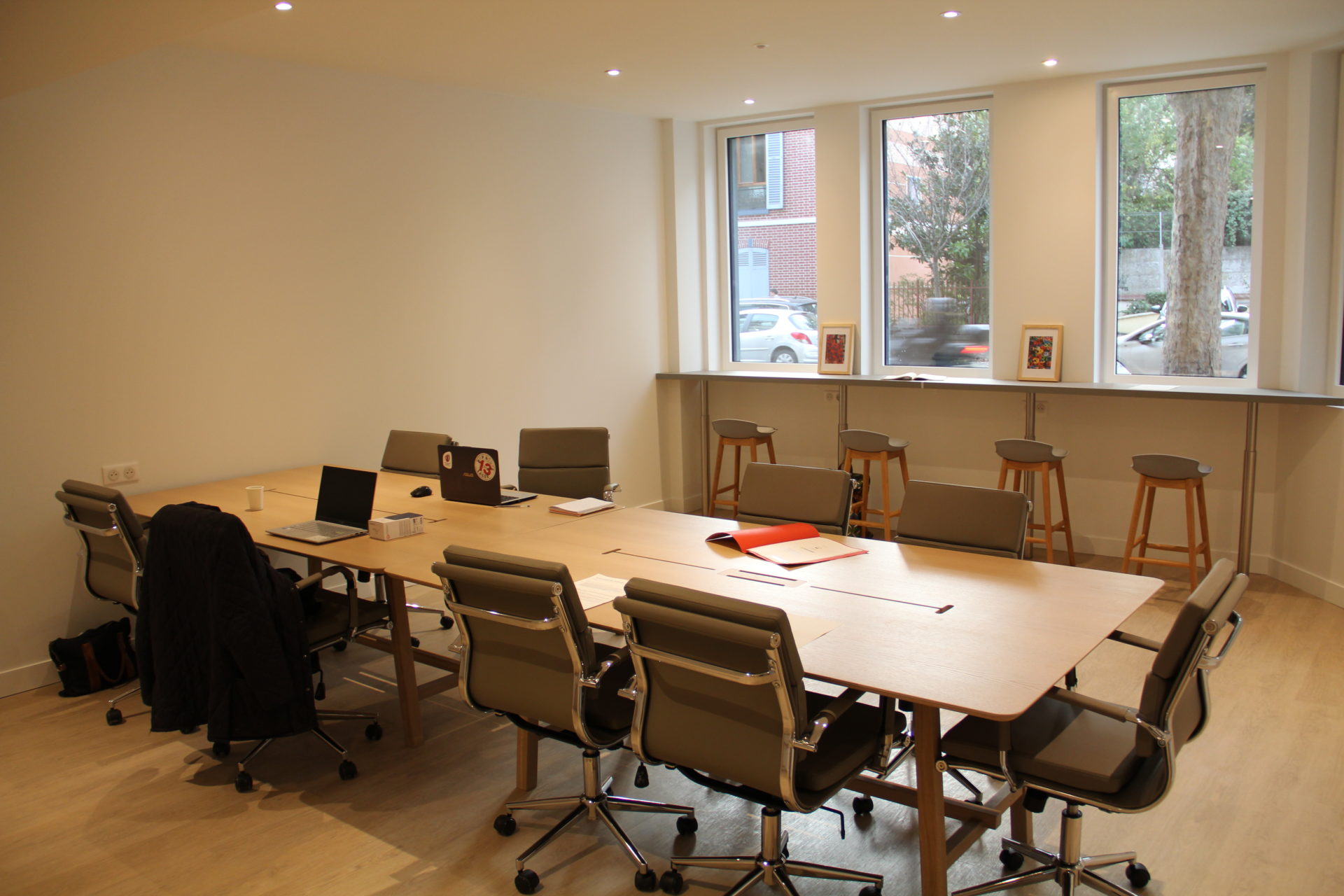The spread of teleworking implies new lifestyles
It is no longer possible to compare the way we work today with the way we worked only a few years ago. The health crisis that we have been through has drastically changed our vision of work, which is no longer only imagined in the office:
- Teleworking is implemented in the majority of professions that allow it.
- Companies are increasingly opting for flexible office solutions such as those offered by coworking spaces. The number of people living in the regions or abroad who come to work in Paris for a few days a week has exploded.
The evolution of work methods is not without consequences for our lifestyles. Indeed, changing the way we work also means changing the way we live.
In this article, we will look at these changes and how companies can adapt. We will also see how companies are organising their new workspaces and finally how coliving is responding to these new challenges.
The world of work is being reinvented.
A study by PwC, entitled Hopes and Fears 2021, sheds light on the major global trends in the evolution of working methods.
The following three data are relevant to us:
- 73% of employees surveyed want a mix of remote and face-to-face work;
- Only 14% say they want to return to their traditional work environment full time;
- In metropolitan areas, 66% are more likely to work in teleworking positions (compared to 44% in rural areas).
The COVID-19 health crisis has played a major role in accelerating and embedding these changes. Companies and their employees have realised that work can be organised in different ways, without affecting productivity and while preserving the work/life balance that has become a priority issue for the new generations.
Some companies even stand out from their competitors by attracting new talent looking for more flexibility in the exercise and location of their functions (flexible working hours, part-time or full-time teleworking, etc.).
Companies have therefore had to rethink the way they work and also redefine their space requirements to accommodate their teams.


The offices of tomorrow: what will they look like?
Working from home, in open spaces or in coworking spaces… what will the offices of tomorrow look like?
Should a company keep traditional offices? Should they design them differently? Should it help its employees to find new working spaces or to set up their workstations at home?
These are all questions that companies and HR departments are thinking about in order to be competitive in the war for talent that large companies are waging.
For several years now, in all of France’s major cities, numerous coworking spaces have been springing up, partly in response to these new challenges.
Freelancers, start-ups, professionals on the move and other nomadic workers can be found there. A workplace that matches the flexibility and autonomy required, offers services and encourages exchanges with others.
Classic office spaces tend to be partially vacated by companies for whom the cost has become too high compared to the time spent by employees on site.
Changing work patterns lead to new lifestyles
If work is increasingly flexible, so should be housing.
Regardless of their situation, there is an increase in mobility among professionals.
We travel for work, for personal needs, or simply because we have the opportunity to do so regularly while working remotely. As a result, we are less interested in owning our own home quickly and more interested in settling down in a place to live.
Thus, new flexible and all-inclusive housing solutions for a few weeks or months are emerging.
And this is where coliving comes in!
Coliving is a concept of shared housing that generally offers stays from one month to more than a year and is characterised by quality private space, services to provide a hotel dimension, as well as common spaces to be shared between residents.
A trend already well established in the United States and Great Britain, coliving made its appearance in France a few years ago and is becoming increasingly important. There are many versions, from young working people’s flatshares to residences with independent studios, services and infrastructures for executives.
Between the shortage of new housing in major cities such as Paris, the growing nomadism of employees and less rectilinear life patterns, coliving has everything it takes to meet the new challenges facing companies.
At Finestate, we provide an answer to these new needs by offering a high-end coliving service in Paris. Our residences offer ready-to-live-in studios in a new building, accompanied by hotel services (cleaning, laundry, maintenance) and infrastructures to be shared between residents (rooftop, coworking, garden, gym, home cinema). While being flexible, our offer frees you from the logistical constraints of traditional rental.
More generally, our offer is aimed at all people in transition or in evolution who are looking for a certain quality of life.



